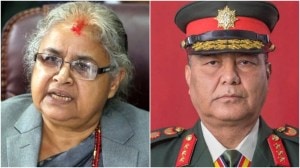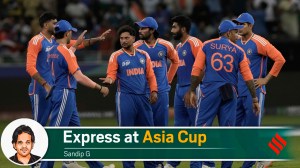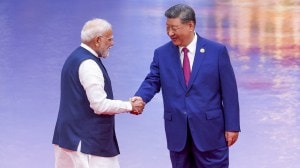
Sources said Wednesday that India served formal notice to Pakistan on August 30, seeking review and modification of the IWT under Article XII (3) of the pact. Under Article XII (3) of the IWT, its provision may from time to time be modified by a duly ratified treaty concluded for that purpose between the two governments.
Story continues below this ad
Sources said India’s notification highlights “fundamental and unforeseen changes in circumstances” that require a reassessment of obligations under various Articles of the IWT.
Among various concerns, the sources highlighted, important ones include “change in population demographics; environmental issues — need to accelerate development of clean energy to meet India’s emission targets; impact of persistent cross-border terrorism”.
The move comes amid the elections in the Union Territory of Jammu and Kashmir, and the spike in Pakistan-sponsored terror attacks in the region.
The notification to review and modify the treaty was issued in the background of a separate prolonged controversy with respect to the Kishanganga and Ratle Hydro Projects. In this regard, the World Bank has simultaneously activated both the Neutral Expert mechanism and the Court of Arbitration on the same set of issues.
Story continues below this ad
The Indian side has, therefore, also called for “reconsideration of the dispute resolution mechanism” under the IWT, sources said.
With this notification, sources India has called Pakistan to begin G2G (government-to-government) negotiations in order to review the treaty under the provisions of Article XII (3).
In January 2023, India had for the first time — in over six decades — issued notice to Pakistan for modification of the IWT.
This would mean that the treaty can be opened for renegotiations, for the first time since it was signed and one that has survived three Indo-Pak wars and the Kargil conflict, as well as several other provocations including terror attacks like the ones in Mumbai and Kashmir over the last three decades.
Story continues below this ad
The IWT was signed on September 19, 1960, after nine years of negotiations between India and Pakistan. Prime Minister Jawaharlal Nehru and Pakistan President Mohammed Ayub Khan had signed the treaty in Karachi.
As per the provisions of the treaty, all the water of “Eastern Rivers” – Sutlej, Beas and Ravi – would be available for “unrestricted use” of India. Pakistan would receive water from “Western Rivers” – Indus, Jhelum and Chenab.
“All the waters of the Eastern Rivers shall be available for the unrestricted use of India, except as otherwise expressly provided in this Article,” Article II (1) of the treaty stated
Article III (1) with provisions related to the Western Rivers stated: “Pakistan shall receive for unrestricted use all those waters of the Western Rivers which India is under obligation to let flow under the provisions of Paragraph (2).”
Story continues below this ad
India is constructing two hydroelectric power projects: the Kishanganga project on the Kishanganga river, a tributary of Jhelum, and the Ratle project on the Chenab. Pakistan has objected to construction of these two projects.
The 330 MW Kishanganga project is a run-of-the-river project, and so is the 850 MW Ratle project.
Over the last few years, while India has maintained that the Neutral Experts mechanism is the appropriate mechanism, Pakistan has pursued the Court of Arbitration – in which India has not participated. That precipitated the issue further, and Delhi’s move to seek “review” and “modification” is meant to address this issue as well.









